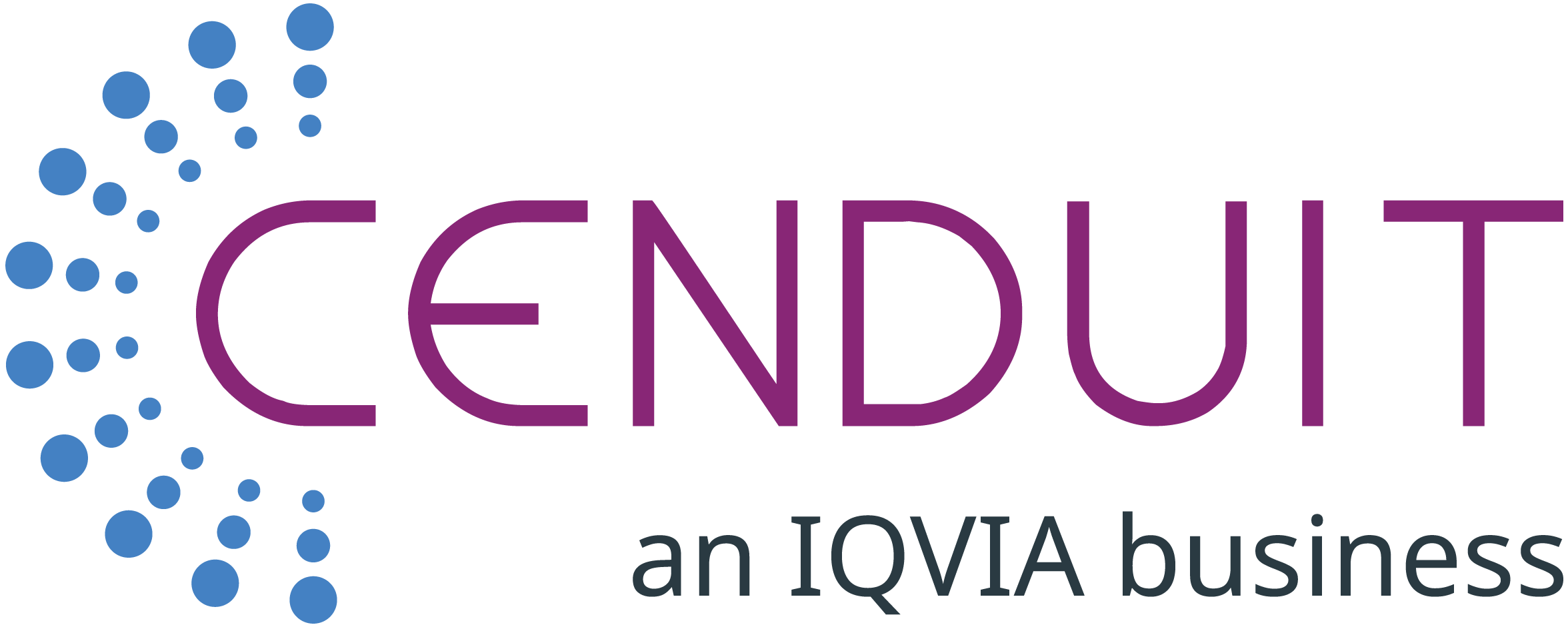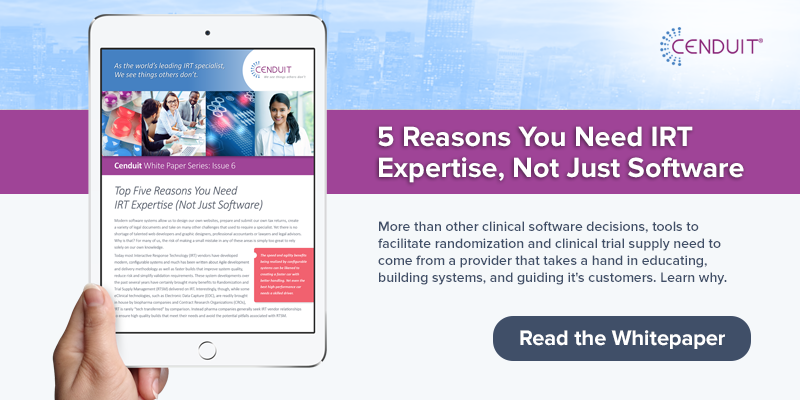Service Excellence: The Cornerstone of Quality Clinical Trials
In March of this year, I had the privilege of presenting at the CTS Europe Conference on the topic, “Evolution of Technology and Service for Successful IRT Implementation.” My presentation discussed the importance of effectively using eClinical technology in today’s increasingly complex clinical trials, backed by service excellence.
A clinical trial ideally functions as a partnership among all stakeholders – sponsor, CRO, sites, patients, and eClinical technology providers. In essence, a service agreement between the sponsor and the eClinical provider ensures that both sides deliver on their commitments and do what they say they will, for all stakeholders.
CTS Europe was no different. The feedback from attendees at my presentation and conference participants is that sponsors and CROs are not getting adequate eClinical technology service and support. This is especially true in the case of some providers who seem to have tacked IRT systems onto eClinical suites, almost as a checkmark, without forethought toward designing for change or potential protocol amendments along the trial’s lifecycle.
IRT – The Heart of a Clinical Trial
IRT systems and their associated technologies exist to randomize and dose trial patients with the right drug at the right time. At Cenduit, patient safety is the foundation of everything we do. Because we specialize in randomization and trial supply management solutions, we know the right questions to ask our clients when we’re building or executing a study.
In today’s world, sponsors should expect technology that is configurable, fully customizable to meet individual study needs, and fully integrated with other eClinical solutions. In order to get the best possible return on investment from IRT, feature rich supply algorithms are essential to maximize efficiency in inventory supply. Technology should also support reduced time and effort in the system design delivery, via mechanisms such rapid prototyping.
The Value of Knowledge and Service
Just as important as the technology is the service expertise in how to achieve the most effective IRT configuration. The study set up phase is the most critical phase of the IRT system lifecycle. Ineffective decisions can result in lots of additional re-work, cost and increased time to collect study data.
Many conversations I've had over the years have begun with clients telling us specifically how the IRT should operate, or how a particular task should be accommodated within the IRT – effectively describing their perceived solution or a solution devised by a legacy provider with their technology limitations in mind. New clients often tell us that their pre-Cenduit studies required costly and time-consuming re-design during project execution, or that following protocol amendment, the platform they were using was unable to accommodate aspects of the new trial design. Re-designing IRT mid-study can affect the overall trial costs and timelines, not to mention taking attention away from the primary objective of treating patients: collecting data and ultimately bringing new drug to market.
Cenduit’s approach to IRT study design is to develop as broad an understanding as possible of client needs, starting with understanding the fundamental problem that is trying to be solved, the operational process the IRT will be complementing, or the wider eClinical landscape within the client’s organization. Understanding this wider context allows our team to design studies aligned to the client’s needs; but also with foresight and an appreciation of the potential future needs from the outset, to minimize the risk of potential future re-design.
Our agile IRT technology is customizable and configurable, offering true flexibility in study implementation. Our team uses the knowledge of the wider context but also the wealth of IRT from over 1,500 studies Cenduit has supported to-date, to apply IRT designs that enable sponsors to apply changes swiftly during study execution via data entry, rather than invasive re-programming.
For example, some study designs are such that cohort dose levels may not be pre-determined at study start, or include the need to expand the cohort based on data collected earlier in the study. Adaptive platform study designs may also include the potential to drop or add treatment arms as the study progresses. We understand how to build an elegant study, free from over-design, and can anticipate and accommodate these future protocol changes. (Read my colleague Mark Gasdaska’s blog on “designing for change” here)
Full Transparency and No Surprises
You can have the best technology in the world, but it means nothing without adequate service and support. Cenduit takes service very seriously, utilizing our global reach to position our Project Managers in the same geographic region as sponsor teams whenever possible.
Communication is key to ensure a proactive and transparent approach can be taken to achieve the best possible outcome to overcome the unexpected event. Where needed, our global help desk is staffed by in-house experts 24/7/365, with the goal of first resolution. This team is easily accessible via a variety of means, be that via real-time chat within our IRT application, e-mail or telephone.
Familiarity, Standardization and Continuous Improvement
Beyond individual protocols, Cenduit operates a Customer Oriented Resource and Engagement (CORE) Operational model. Aligning cross-functional operational resources with sponsor organizations, facilitating the opportunity to develop increased levels of understanding and familiarity across organizations, and presenting the opportunity to identify goals and objectives from IRT technology beyond individual protocols.
Cenduit appreciates that the IRT system is a relatively small but critical component in the mechanics of a clinical trial. Sponsors typically have their own operational processes that need to be supported by the IRT design, and different technologies that require seamless data flow to support trial decisions during execution. Cenduit has a wealth of experience in supporting individual client needs, and via the use of our CORE operational model, we are able to create client-specific processes, standard system configurations and standard data integrations that align to the individual needs of the sponsor. By providing access to our subject matter experts in the relevant areas, we are able to enable peer-to-peer discussions across organizations to ensure that the best possible solutions are implemented.
By implementing standards with sponsors, we are able to reduce the burden on study teams and enable individuals to focus on the specific needs of their protocol without having to continually re-establish requirements that do not change from protocol to protocol within their organization. Standards are continually assessed for effectiveness and suitability, where requirements can evolve to support continual improvement over time.
Governance – The Path to Smooth Operations and Trust
The implementation of governance structures between eClinical providers and sponsors is a vital aspect of service excellence. A governance structure enables an eClinical technology provider to understand the client's needs from a long-term strategic and operational perspective. Whether communication is peer-to-peer or otherwise, a comprehensive governance structure gives all stakeholders a voice. Clear escalation structures are established between both organizations, and demonstrates how both sides are addressing their commitments, with complete transparency.
In long-term sponsor/provider relationships, we recommend a well-defined governance structure with multiple tiers of engagement. This ensures that stakeholders at both the sponsor and the provider are adequately supported in working to meet their commitments, while setting the medium to long-term direction for the Cenduit-sponsor relationship.
A key component to relationship governance is the definition and reporting of Key Performance Indicators (KPI) and Service Level Agreements (SLAs). KPIs are tailored according to the needs and goals of each sponsor relationship. KPIs are also aimed at evaluating the success and demonstrating the performance of stakeholders within the relationship. These can include measures demonstrating timely delivery, client satisfaction, quality in delivery, financial aspects, or particular activities of the sponsor team. KPI data provides an invaluable tool to show a sponsor what “good” looks like and hone in on focus areas for the road ahead.
Service Excellence – Listening, Learning, Leading the Way to New Treatments
I’ve been in the field, across the globe in support of sponsors’ clinical trials, as have my colleagues at Cenduit. When we speak with clients, whether for a rescue or a new study, we understand not just the “what” behind a protocol and wider organizational needs, but the “why.” We’re able to connect with clients in a way that allows us to understand how to solve complex problems to make their lives, and the lives of their colleagues and site personnel easier.
Inevitably, when a sponsor comes to Cenduit, they express their relief not only in using a technology that works, but also working with a team that supports them every step of the way -- with the objective of contributing to their decision-making process, and lives and breathes their trial. Contact us here and let’s start a conversation about how our dedicated people, processes and technology can raise the quality and innovation of your clinical research programs.
Posted by Chris Flint, Director of Client Delivery






